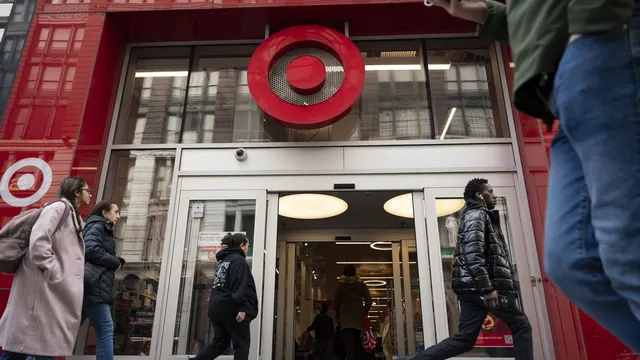
Pastor Jamal Bryant demands full boycott of Target over diversity failures
2025-04-24 22:31- The Rev. Jamal Bryant is leading a campaign against Target due to unmet diversity and equity demands.
- He argues that Target's changes to its DEI initiatives undermine support for Black employees and businesses.
- Bryant has called for a full boycott of Target until the company addresses their specific demands.
Express your sentiment!
Insights
In the United States, a pastor from Georgia has escalated a campaign against Target stores, previously initiating a nationwide 40-day 'fast' boycott aimed at addressing the company’s approach to diversity, equity, and inclusion (DEI) initiatives. The Rev. Jamal Bryant, leading this effort, expressed dissatisfaction with Target’s recent changes to its DEI commitment, which included a decision to phase out certain programs designed to support Black employees and businesses. These initiatives were vital for promoting career development and economic opportunities within the Black community. The boycott emerged as part of a broader trend, where conservative movements, including actions taken at the governmental level during the Trump administration, have sought to dismantle DEI policies across various sectors, including education and federal institutions. Bryant’s actions coincide with a heightened national discourse on the importance of equity in corporate practices, asserting that without visible and effective measures to uphold DEI commitments, companies like Target may face backlash from communities that feel marginalized. In a statement, Bryant articulated the need for Target to engage seriously with their demands, which involve restoring prior DEI commitments and financial investments into Black-owned businesses and banks. He emphasized the urgency of their cause by claiming that silence and inaction are unacceptable, and communities deserve more than empty promises. His call for continued protest has resonated with other faith leaders who have endorsed the cause, marking a significant moment for community organizing against perceived corporate failures. The reverberations of this protest have yet to be fully understood, as the campaign highlights a critical juncture where consumer consciousness combines with moral and ethical considerations related to corporate responsibility. As communities mobilize to demand accountability from major retailers, the outcome of Bryant's efforts may set a precedent for future engagements between businesses and civil rights organizations, establishing new expectations for corporate contributions to racial equity and social justice initiatives.
Contexts
The impact of protests on corporate diversity policies has become a pivotal topic following significant social movements around the globe. In recent years, especially since the events of 2020, there has been an observable shift in corporate America and beyond regarding how companies approach diversity, equity, and inclusion (DEI) initiatives. The intersectional nature of protests, often highlighting systemic racism and social injustice, has pressed organizations to reevaluate their existing policies and commit to transformative practices that not only diversify their workforce but also promote a genuinely inclusive culture. These developments underscore a corporate paradigm in which stakeholders, including consumers, employees, and investors, are increasingly demanding accountability and action from organizations regarding their diversity commitments. At the heart of this transformation is the direct influence of social movements that have elevated public awareness and urgency around diversity issues. Protests, such as those supporting racial justice, have showcased the disparities and inequities faced by underrepresented groups, prompting organizations to reconsider their stance on hiring, retention, and promotion. In response, numerous companies have launched new programs aimed at enhancing representation within their ranks. For instance, many firms have revised their recruitment strategies to target underrepresented communities, implemented mentorship schemes, and invested in training programs designed to address unconscious bias in the workplace. Additionally, the growing practice of public accountability through commitments to measurable goals has made organizations susceptible to reputational risks should they fail to deliver on their promises. Furthermore, this momentum has led to the establishment of more comprehensive corporate policies that extend beyond mere compliance with existing legislation to actively advocating for social change. Many organizations are now creating partnerships with external organizations to promote diversity and inclusion within their industries, contributing to broader advocacy efforts that align corporate values with societal expectations. The increased scrutiny from investors and consumers has also propelled companies to adopt long-term diversity strategies that incorporate clear metrics for success, fostering an environment where diversity is not seen as an obligation but rather a strategic advantage. The investment in DEI initiatives has proven beneficial in terms of innovation, employee morale, and overall performance, reinforcing the narrative that diverse teams drive better business outcomes. In conclusion, the relationship between protests and corporate diversity policies is undeniably significant. The ongoing societal demand for change continues to reshape how organizations perceive their responsibilities regarding diversity and inclusion. As public awareness grows and the expectations placed upon companies evolve, it is essential for organizations to maintain accountability and actively participate in driving meaningful changes. The future of corporate diversity practices hinges on the ability to respond to these social movements, ensuring that diversity is not just a trend, but a foundational element of corporate identity and strategy.